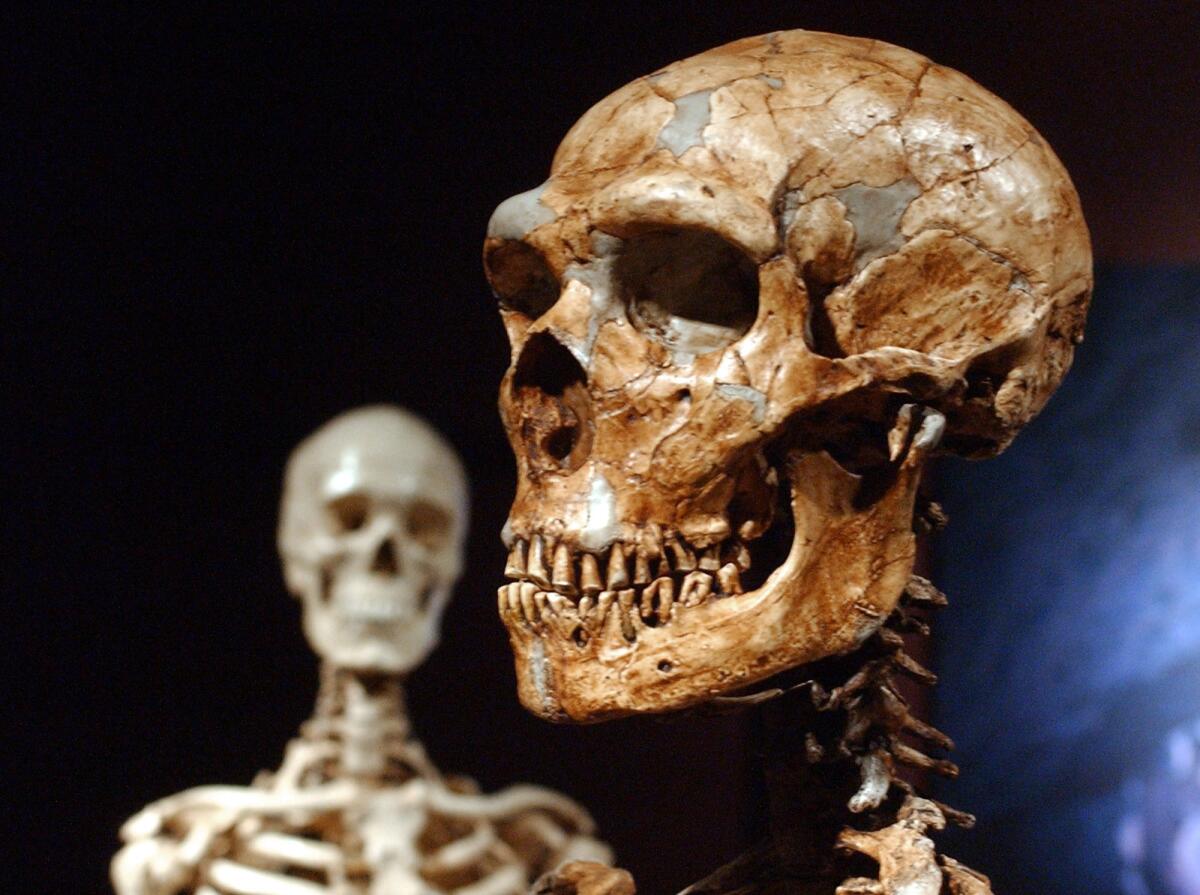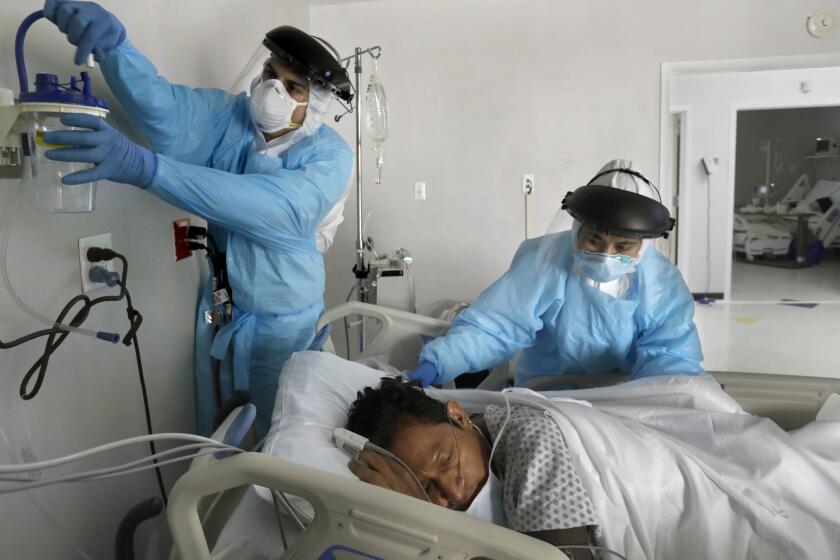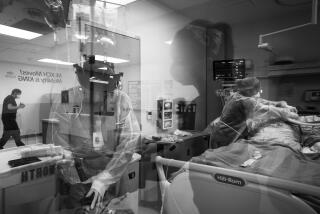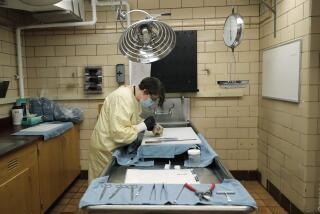Genes inherited from Neanderthals may put COVID-19 patients at risk

Scientists have identified a potential new risk factor for severe cases of COVID-19: a cluster of genes that originated in Neanderthals.
These genes have been linked to a higher risk of hospitalization and respiratory failure in patients who are infected with the coronavirus, scientists reported Wednesday in the journal Nature.
Researchers Hugo Zeberg of the Karolinska Institute in Sweden and Svante Paabo of the Max Planck Institute for Evolutionary Anthropology in Germany determined that the genes belong to a group, or haplotype, that likely came from Neanderthals. The haplotype is found in about 16% of the population in Europe and half the population in South Asia, while in Africa and East Asia it is nonexistent.
Modern humans and Neanderthals are known to have interbred at various points in history, resulting in an exchange of genes than can still be found today.
The Neanderthal genes are one of several risk factors for COVID-19, including age, sex and preexisting conditions like obesity, diabetes and heart problems.
The older you are, the greater your risk for a severe case of COVID-19, the CDC says as it expands its list of risky underlying health conditions.
Zeberg and Paabo noted that the prevalence of the particular Neanderthal gene group is highest in people from Bangladesh, where 63% are estimated to carry a copy of the haplotype.
They also cited studies from the U.K. showing that people of Bangladeshi descent have roughly double the risk of dying from COVID-19 compared with the general population.
“It is striking that the genetic heritage from the Neanderthals has such tragic consequences during the current pandemic,” Paabo said in a statement. “Why this is must now be investigated as quickly as possible.”
The term ‘herd immunity’ has found its way into politicized discussions about how to overcome the COVID-19 pandemic. What does it actually mean? Can it work?
But Andre Franke, director of the Institute of Clinical Molecular Biology at the University of Kiel in Germany, said the findings have no immediate impact on the treatment of COVID-19.
In a comment ahead of the study’s final publication, Franke said one interesting question arising from the study is why that haplotype survived until today when most Neanderthal genes did not.
“Perhaps it’s good for a very active immune system if one doesn’t have other risk factors,” Franke suggested.








